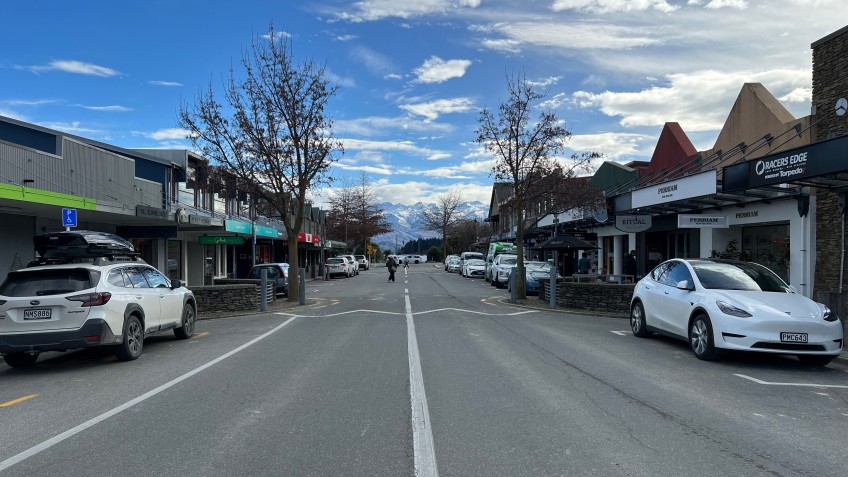Local board in Wānaka wants more clout on spending decisions

The Wānaka-Upper Clutha Community Board wants more decision making power around how money in the district ward is spent, particularly with "rainy days" signalled on the horizon.
Specifically, the board is advocating for control of funds created by the sale of land at Scurr Heights by the Queenstown Lakes District Council in 2016.
While to date the community board has generally provided its tick of approval for projects that have benefitted from what started as a more than $15.6-million kitty, it now wants to take this further and is asking for a more formal, delegated authority to choose where future spending is focussed.
Board chair Simon Telfer says approximately $4.5 million remains in the fund - labelled the Wānaka Asset Sales Reserve - with some imminent land sales set to bolster it.
Mr Telfer says the reserve was created from the sale of Wānaka land for the benefit of the Upper Clutha community.
"It should therefore be administered by the community via the community board. As elected members we are at the coalface and understand community needs and priorities.
"This will be the only financial autonomy the community board has and this level of empowerment is a long time coming."
He says the purpose of the fund is for capital expenditure in transport, water, sewerage, stormwater, land improvements and community facilities.
"I personally see the majority of investment going in to community facilities over the coming years. I'm also keen to see us partnering with local community organisations to co-ordinate efficient and cost effective delivery of these projects."
The ratepayer owned land was sold to Wānaka developer Lane Hocking, behind Universal Developments, and money from the sale has helped fund the Wānaka swimming pool, the Luggate Memorial Hall and the Wānaka Community Hub.
However what is left over is declining in value, Mr Telfer says.
"Inflation continues to eat away at the purchasing power of the reserve...It needs to be available to support community facilities and infrastructure especially given the large reduction in investment signaled in the upcoming Long Term Plan. The rainy days are on the horizon."
In a report to be presented at tomorrow's community board meeting, Mr Telfer says council chief executive Mike Theelen "has committed to allocating senior internal resources next month to discuss and develop this initiative further".
Deputy mayor and Wānaka councillor Quentin Smith says in principle he supports the idea of the board being granted more direct control, although he stresses that to date spending decisions in relation to the fund have been "at the discretion of the board, from a recommendation point of view".
"I suppose the community board wants some more autonomy; particularly under the financial challenges that we've got that seems to be a valid option."
It is Mr Telfer's view the move would also be appropriate in the context of a recent Local Government Commission decision, which was made in response to a petition spearheaded by Wānaka man Dean Rankin calling for the Wānka-Upper Clutha ward to break away from the district council.
"The Local Government Commission has recommended that QLDC gives the community board more empowerment - this is a very tangible way to achieve this recommendation," Mr Telfer says.
Down the road in Cromwell, a different community board and a different council are in the thick of a debate about power shifting the other way - from community board members to councillors.
Historically the community boards in the Central Otago District have had high levels of delegated authority - potentially more than anywhere else in the country - but a new council chief executive has made moves to reign this in, although his attempt has been met with strong community resistance, particularly in Cromwell.


























